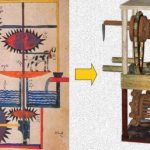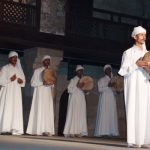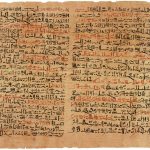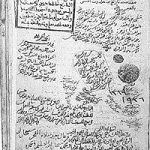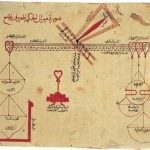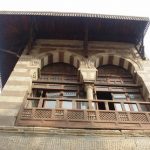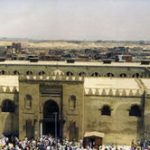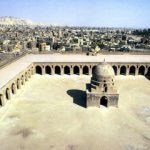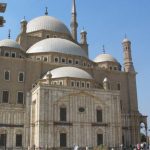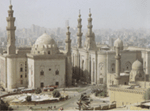Ramadan and Islam
Like Muslims all over the world, Egyptian Muslims fast for the holy month of Ramadan. It is a time when they all come close to each other and respect each other, and it’s also a time when Egyptian Muslims stay awake every night. During the month of Ramadan charity is a priority. It is the time for forgiveness and love. It is a wonderful month. To understand Ramadan, we need to first understand the Islamic faith.
About Islam
Islam is the second-largest religion in the world and is the final link in the Judeo-Christian-Islamic tradition of monotheism (belief in one God). Islam has two major religious celebrations during the year. One of them, known as Eid al-Adha (Festival of Sacrifice), takes place during the time of the Hajj, or annual pilgrimage to the city of Makkah (in modern-day Saudi Arabia, also known as Mecca). The other celebration occurs at the completion of Ramadan, the Islamic month during which Muslims (believers in Islam) fast daily from dawn to sunset as part of an effort towards self-purification and betterment. This holiday is known as Eid al-Fitr (Festival of Breaking the Fast).
Fasting is among the most important duties for a Muslim during Ramadan. The month of Ramadan occurs during the ninth of the twelve months in the Islamic lunar calendar. Muslims use a lunar calendar for many of their religious observances. A new month in the lunar calendar is determined by the appearance of a new crescent moon. Since this occurs every 29 or 30 days, the lunar month is generally 1 or 2 days shorter than a typical month in the Gregorian calendar. Similarly, a lunar year is about 11 days shorter than a typical Gregorian year. As a result, dates of events in the Islamic lunar year “move forward” about 11 days every year. For example, in 1995 Ramadan began on February 1, and in 1996, it began on January 22.

The Importance Of Ramadan
Ramadan is important for Muslims because it is believed to be the month in which the first verses of the Holy Qur’an (the divine scripture in Islam) were revealed by Allah (God) to the Prophet Muhammad (570-632 C.E). From time to time, Muhammad used to go out from Makkah, where he was born and where he worked as a caravan trader. He went off on his own to reflect and meditate in solitude. Like Abraham before him, he had never accepted his people’s worship of many gods and felt a need to withdraw to a quiet place to reflect on the One True God. One night, while contemplating these matters in a cave near Makkah, he heard a voice call out telling him to “recite!” Muhammad protested that he was unable to read and write. The voice insisted again, and then a third time, and Muhammad found himself reciting the first verses of the Qur’an:
“Read, in the name of the Lord, Who created man, out of a clot (embryo). Proclaim! and the Lord is Most Bountiful, He Who taught man that which he knew not. nay, But name both transgress all bounds, In that he looketh upon himself as self-sufficient. Verily, to thy Lord of the Return (of all).” (Ch.96: 1-8)
The voice was that of the Angel Gabriel, and he confirmed that Muhammad was selected for an important and challenging mission; he was to call his people back to monotheism and righteousness by imparting God’s final message to the world. Muslims consider the Qur’an to be God’s speech recorded in the Arabic language and transmitted to humanity through Muhammad, who is considered the last of the prophets. This tradition of God-chosen prophets, or messengers, is believed to include such figures as Adam, Noah, Abraham, Moses, David, and Jesus. Muslims believe that over a period of twenty-three years, various verses and chapters of the Qur’an were revealed to Muhammad through the angel Gabriel’s intercession. The Qur’an is comprised of 114 chapters of varying length, with titles such as “Abraham”, “The Pilgrimage”, “Mary”, and “Repentance.”
During Ramadan Muslims fast every day from dawn to sunset. This means not consuming food and drink, including water, during daylight hours. For married adults, it also includes refraining from marital relations during the hours of fasting (i.e. the daylight hours). In the Arabic language, fasting is known as sawm. Muslims arise early in the morning during Ramadan to have a pre-dawn breakfast meal known as suhoor. At the end of the day they have the iftar meal, which usually includes dates, fresh fruits, appetizers, beverages, and dinner, completing the daily fast. Later in the evening, Muslims attend special nightly tarawihprayers at their local masjid (mosque). Each night during Ramadan, approximately 1/30th of the Qur’an is recited in the tarawih prayers, so that the entire scripture is recited in the course of the 29 or 30 days of the month.
Why Muslims Fast
Fasting Has A Number Of Benefits
1. It helps one to feel compassion for those who are less fortunate and underprivileged, since each day Muslims feel a greater appreciation for what they have the rest of the year as a result of feeling hunger and thirst for the month of Ramadan.
2. It allows one to build a sense of self-control and willpower, which can be beneficial throughout life in dealing with temptations and peer-pressure. Through fasting, Muslims learn to control their natural urges such as hunger, thirst and sexual desire, and thus are able to better resist temptations for things that are not necessary, such as drugs or other unhealthy or harmful substances and behaviors.
3. It offers a time for Muslims to “purify” their bodies as well as their souls, by developing a greater sense of humility, spirituality, and community. Ramadan is a very spiritual time for Muslims, and often they invite each other to one another’s homes to break the fast and pray together. A greater sense of generosity and forgiveness is also characteristic of this time.
As with other duties in Islam, fasting becomes obligatory (i.e. one becomes accountable) after the age of puberty.
Eid El-Fitr
After the end of Ramadan, Muslims celebrate a very festive and joyous holiday called Eid al-Fitr
, which means the Festival of Breaking the Fast. On the day of the Eid, Muslims attend special congregational prayers in the morning, wearing their best clothes and perfumes. After the completion of prayers and a special sermon, Muslims rise to greet and hug one another, saying “Eid Mubarak,” which means “Holiday Blessings.” Later on, Muslim families visit each other’s homes and have special meals together. Children are often rewarded with gifts, money, and sweets and lights and other decorations mark the happy occasion.
Islam Vocab List
Ramadan – The 9th month of the Islamic lunar calendar, during which Muslims fast from dawn to sunset.
Sawm – Arabic word that means “fasting”.
Suhoor – The pre-dawn breakfast meal eaten before beginning the daily fast.
Iftar – The evening meal, taken after sunset to break the daily fast.
Tarawih – Special prayers offered nightly during Ramadan, in which approximately 1/30th of the Qur’an is recited each night.
Eid al-Fitr – Festival at the end of Ramadan, in celebration of completing the month of fasting. This takes place on the 1st day of the next month, Shawal.
Key Figures In Islam
Muhammad — A prophet and righteous person, believed by Muslims to be the final messenger of God, whose predecessors are believed to include prophets Adam, Noah, Abraham, Moses, David, and Jesus, among others.
Gabriel — Muslims believe that among God’s many creations are Angels. Gabriel is believed to be one of the most important Angels as he was responsible for transmitting God’s divine revelations to all of the human prophets, ending with Muhammad.
Key Places In Islam
Arafat – A place where pilgrims travel to as part of the Hajj. Pilgrims offer prayers there throughout the day.
Makkah (Mecca) – The sacred city of Muslims, in modern day Saudi Arabia, where the Ka’bah is located.
Mina – A place where pilgrims camp, located on the outskirts of Makkah.
Muzdalifa – A place where pilgrims stay overnight and pray during the Hajj.
Safa and Marwah – Two hills near the Ka’bah.
Miscellaneous Terms
Allah — The Arabic name for God.
“Eid Mubarak” — A greeting used by Muslims during the Eid holidays. It means “Holiday Blessings!”
Makkah (Mecca) — The sacred city of Muslims, in modern-day Saudi Arabia, where the Ka’bah (house of worship built by Abraham) is located.
Masjid — Muslim house of worship, (also known as “mosque.”)
Monotheism — Belief in One God.
Polytheism — Belief in many Gods.
Qur’an (Koran) — The holy book of Muslims, containing God’s revelation to Muhammad.
We hope this helps you understand more about Ramadan and Islam.


